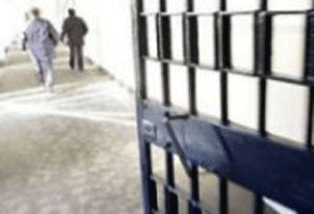Shorena Kakabadze, Kutaisi
It is serious step forward to restore justice on the background of severe criminal law in the country – the authors of the draft-law on amnesty stated; initial discussion of the draft-law took place at the Human Rights Committee of the Parliament of Georgia on November 19; there was controversy between parliamentary majority and minority members and heated debates during the discussion.
According to the draft-law, large-scaled amnesty is planned in Georgia. However, it is not yet decided which particular articles will become target of the amnesty.
Member of the parliamentary majority and chairwoman of the Human Rights Committee Eka Beselia said “amnesty will work on behalf of probationers, prisoners, who were convicted for minor crimes. Criminal records will also be annulled and it will be serious relief for people. We have already reached preliminary agreement on minor crimes. As for other articles, we will decide whether amnesty will mitigate punishments or not.”
According to the draft-law, probationers will be discharged from punishment and their number in the country is 37 030. Also, people, convicted for minor crimes (up to five years imprisonment). It is about Article 33 (abuse of power), Article 112, 137 and 178 part I (robbery) of the Criminal Code of Georgia.
Bill authors clarify that penitentiary establishments of Georgia are overcrowded and majority of prisoners were arbitrarily imprisoned. Considering these circumstances, people convicted for imprudent crimes will also be discharged; as for juvenile prisoners, women and people convicted for the first time for not grave and particularly grave crimes will have their sentences reduced at half.
People convicted under Article 314 – espionage and Article 260 Part I, II and III (drug-addiction) of the Criminal Code of Georgia will also have their sentences reduced at half.
How will the government maintain current criminal situation in the country after such a large-scale amnesty and whether public safety will be under question after all these? - Parliamentary minority asked the bill authors at the session of the Human Rights Committee on November 19. Later it was clarified that amnesty is human act but it is dangerous with its scales and chaotic character. Majority members request the penitentiary and interior ministries to publish exact number of people, who can be amnestied or have their punishments reduced in accordance to the draft-law.
“Final decision was not made on this issue. We continue discussion and debates on it. We will hear everybody’s opinion, including governmental institutions- MIA and Penitentiary Ministry. Our purpose and principle is to allow as many people as possible to feel benefit of the amnesty as a human act. Of course, we also consider public concern about general security,” Eka Beselia, chairwoman of the Human Rights Committee said.
Majority thinks large-scale amnesty will restore social justice in the country “because long-term peace relies on justice.”
Representatives of the Georgian Young Lawyers’ Association have different opinion. They think the government shall take responsibility for public safety.
Executive director of Human Rights Center Ucha Nanuashvili said amnesty will not aggravate criminal situation in the country. “Allegation about possible worsening of criminal situation in the country is not correct, in my opinion. I do not think that if people, convicted for stealing 15 lari or nuts, are released from prison, they will create undermine public peace. I think, those people shall have chance to start new life. Those, who were arbitrarily imprisoned, shall also be released. The draft-law does not consider cases of recidivists. So, there is no threat. Possible beneficiaries of the amnesty were placed in prison as a result of dragoon laws and zero tolerance. If they create problems for the society, they will be repeatedly arrested and convicted.”
According to official data, 21 230 prisoners serve their terms in penitentiary establishments. Part of them will leave custody on November 23. Before that, Human Rights Committee will hear positions of the MIA and Penitentiary Ministry.




